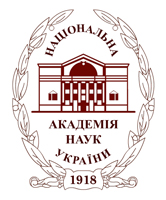Hrebnieva Hanna
Authorship and Pseudonym: Searching the Truth (Heuristic Research Method)Abstract: The article deals with the problem of establishing authorship of documents stored in the collection of the Central Scientific Library at V. N. Karazin Kharkiv National University. Thanks to donations and gifts, in the second half of the 19th century, memoirs, nonfiction, historical and artistic works were put into the University Library fund. The study is based on the example of works of art and nonfiction that were written and printed in Western Europe in the 19th century. The origin of the pseudonyms of Western European writers and the reasons for their use of the fictitious name are explained, the ways of the pseudonyms origin are analyzed, their impact on human life is evaluated and classified. Papers that became the subject of research often did not have any information about the author. The issue of authorship is a topical one for the cataloger; this contributes to a high-quality document retroconversion. It is noted that the database of the Central Scientific Library at V. N. Karazin Kharkiv National University has about seventy aliases of Western European authors who lived and published their works in the 19th century. Mostly these are representatives of the UK, Germany, France, Poland. The reasons why the author resorted to the use of aliases are indicated. Either the subject matter of the works might not meet the standards or moral concepts of the time, or the author wanted to attract attention by using a big name, or hide his origin, or, conversely, hint at his territorial identity, social status, etc. The article addresses the issue of a woman's place in the literary field. It is noted that women for a long time could not express themselves or claim to more or less high social roles, they entered the literature gradually, initially as translators (nobles were fluent in foreign languages) and children's authors. The study proves that some female authors are surprisingly prolific and raise serious issues in their works. There is a need for further research on this topic. Keywords: the collection of the Central Scientific Library at V. N. Karazin Kharkiv National University, Western European authors of the 19th century, pseudonym, anonym, phrenonym, andronym.
Author(s) citation:
Cite:
Hrebnieva Hanna (2020). Authorship and Pseudonym: Searching the Truth (Heuristic Research Method). Bibliotechnyi visnyk, (3) 23-28. (In Ukrainan). doi: https://doi.org/10.15407/bv2020.03.023
References: - Vedina, T. F. and Lebedeva, N. V. (2003). Tainy psevdonimov: slovar dlia liuboznatelnykh [Secrets of Pseudonymes: A Dictionary for the Curious]. Moscow, Russia: Russkyi yazyk. Kursy: Flinta. [In Russian].
- Dmytryev, V. H. (1980). Skryvshie svoe imia: iz istorii anonimov i psevdonimov [Hiding their name: from the history of anonyms and pseudonymes]. Moscow, Russia: Nauka. [In Russian].
- Krasniashchikh, A. P. and Beliaev, K. A. (2004). 1000 psevdonymov [1000 pseudonymes]. Kharkov, Ukraine: Folio. [In Russian].
- Mochalkina, K. S. (2004). Psevdonimy v sisteme sovremennoi russkoi antroponimii [Aliases in the system of modern Russian anthroponymy] (Extended abstract of PhD dissertation). Volgograd. [In Russian].
- Polskie herby [Polish emblems]. [In Russian].
- Prichiny poiavleniia i proiskhozhdeniia psevdonimov [Reasons for the appearance and origin of pseudonyms]. [In Russian].
- Shevchuk, V. Iz vershyn ta nyzyn. U sviti psevdonymiv [From the peaks and lowlands. In a world of aliases]. [In Ukrainian].
- Chachowska, J. and Loth, R. (1981). Przewodnik polonisty: bibliografie, słowniki, biblioteki, muze a literackie [Polish language guide: bibliographies, dictionaries, libraries, literary museums]. Wrocław, Poland: Ossolineum. [In Polish].
- Larousse, P. (1866–1877). Grand dictionnaire universel du XIXe siècle: français, historique, gèographique, mythologique, bibliographique, littèraire, artistique, scientifique, etc., etc [Great Universal Dictionary of the XIXth century: French, history, geography, mythology, literature, literary, artistic, scientific, etc., etc.]. en (17 vol.). Paris, France: Administration du grand dictionnaire universel. [In French].
- Gwinn, R. P., Norton, P. B. and Goetz, P. W. (Eds.) (1989). The new encyclopaedia Britannica. (Vol. 6). Chicago, USA; Auckland, New Zealand; Geneva, Switzerland: Encyclopaedia Britannica. [In English].
- Gwinn, R. P., Norton, P. B. and Goetz, P. W. (Eds.) (1989). The new encyclopaedia Britannica. (Vol. 9). Chicago, USA; Auckland, New Zealand; Geneva, Switzerland: Encyclopaedia Britannica. [In English].
- J. Z. (Zebr.) (1905). Pseudonima i kryptonimy pisarzow polskich [Pseudonym and codenames of Polish writers]. Warszawa, Poland: Arct. [In Polish].
- Richter, S. (2017). Eine Weltgeschichte der deutschsprachigen Literatur [A world history of German-language literature]. (2. Aufl.). München, Germany: C. Bertelsmann Verlag. [In German].
- Room, A. (2010). Dictionary of pseudonyms: 13000 assumed names and their origins. Jefferson, USA: McFarland and Company. [In English].
- Jankowski, E. (Ed.) (1996). Słownik pseudonimów pisarzy polskich. [Dictionary of nicknames of Polish writers]. (Vol. 3) Wrocław, Poland: Zakład Narodowy im. Ossolińskich. [In Polish].
- Weller, E. (1856). Index pseudonymorum: Worterbuch der Pseudonymen, oder Verzeichniss aller Autoren, die sich falscher Namen [Index pseudonymorum: dictionary of pseudonyms, or directory of all authors who have false names]. Leipzig, Germany: Falcke and Rossler. [In German].
|
 bv.nbuv.gov.ua
bv.nbuv.gov.ua
![]() Content (2020, Issue 3)
Content (2020, Issue 3)![]()
![]()